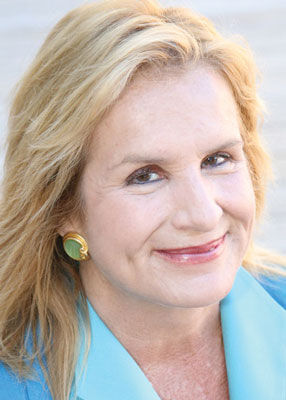I am not quite certain whether I have social-emotional intelligence or not. But I am fairly certain I can spot when it is missing in someone else.
Self-awareness seems to be the key here, and not the kind concerned with how you look in your favorite color or whether or not your eyeglasses complement the shape of your face. The deeper kind.
I’m referring to that intuitive self-regulation about how you are received — if you speak to people in the way they want to be spoken to and whether or not you are invading space when you ask personal questions. In short, if you have a clue.
The term was born in 1990 by Peter Salvey from Yale University and John Mayer (no, not the singer, who clearly is lacking in emotional IQ, at least if we are to believe former girlfriends Katy Perry and Taylor Swift) of the University of New Hampshire. The two professors decided emotional IQ was of better use to humans than cognitive IQ. Self-awareness, self-management, social awareness and social skills are the ultimate keys to a wonderful life.
The bottom line, they asserted, is the more social-emotional intelligence you have, the better your life probably is — and better too are the lives of people you deal with, like the children who live upstairs or the colleague you commute with to the office.
I like that it is called "intelligence" because that assigns it a loftier attribute than just the "people smart" vs. "book smart" vs. "street smart" delineations my mother was so fond of proclaiming. She much preferred I be friends with book smart girls, because the street smart girls were not who she wanted me palling around with on weekends. Similarly, the book smart boys, the nerds, were preferred by both my parents as high school dates over the boys who arrived on motorcycles, for whom my parents wouldn’t let me leave the house.
The ideal is to have a little — or a lot — of all three kinds of smart. Not so good if you are completely missing a side of the triangle. And we all know some of those.
I have been lucky enough in my work to meet gobs of super intelligent people who do great work in fields from law to medicine to engineering to philanthropy and, yes, to journalism. I look to these people for brain stimulus on what to read, watch, absorb, discover, attempt or avoid.
Not all of them are equipped on the social-emotional intelligence front. They might not be able to read a room and know when they are going on too long or that someone is sobbing uncontrollably in the corner and it is perhaps time to shush up. They usually act surprised when you whisper that maybe this is not the right time for that, or suggest a more humane response to someone who is offended to the core by an offhand remark.
"Bless her heart," as my Dallas friends would say. Which anyone from Texas or any part of the South will tell you is not really what they mean. It’s a judgment call that the person just might be clueless and doesn’t know any better. And that blessings are all that will save her.
I do value traditional or cognitive intelligence, the yearning to learn and discover new ideas or a reverence for culture, art, history and the brilliance of science as a way to unleash solutions. I like the process of finding answers to questions and reading up on the answers that others have already unearthed.
I also appreciate the social-emotional brilliance of people who are quick to sum up a situation — like the Kenny Rogers song says, "You’ve got to know when to hold ‘em. Know when to fold ‘em. Know when to walk away. And know when to run." Some people just don’t.
Yet there are those who do. And these folks are masterfully blessed with social-emotional intelligence. These are my friends and, if I am lucky, new acquaintances, who treat everyone the way they want to be treated, have kindness and empathy tacked onto every sentence, and can read a person as easily as if she was a billboard three stories high.
As the weather warms and spring turns to summer, I seem to get more welcome invitations to gatherings, dinners, lunches and events indoors and out, all blooming with chances to connect with others and learn more about them — and more about myself in the process.
I hope to spend more time with people who bear the qualities of self-awareness that I so wish to convey. Maybe, just maybe, some of their emotional brilliance will rub off on me.


